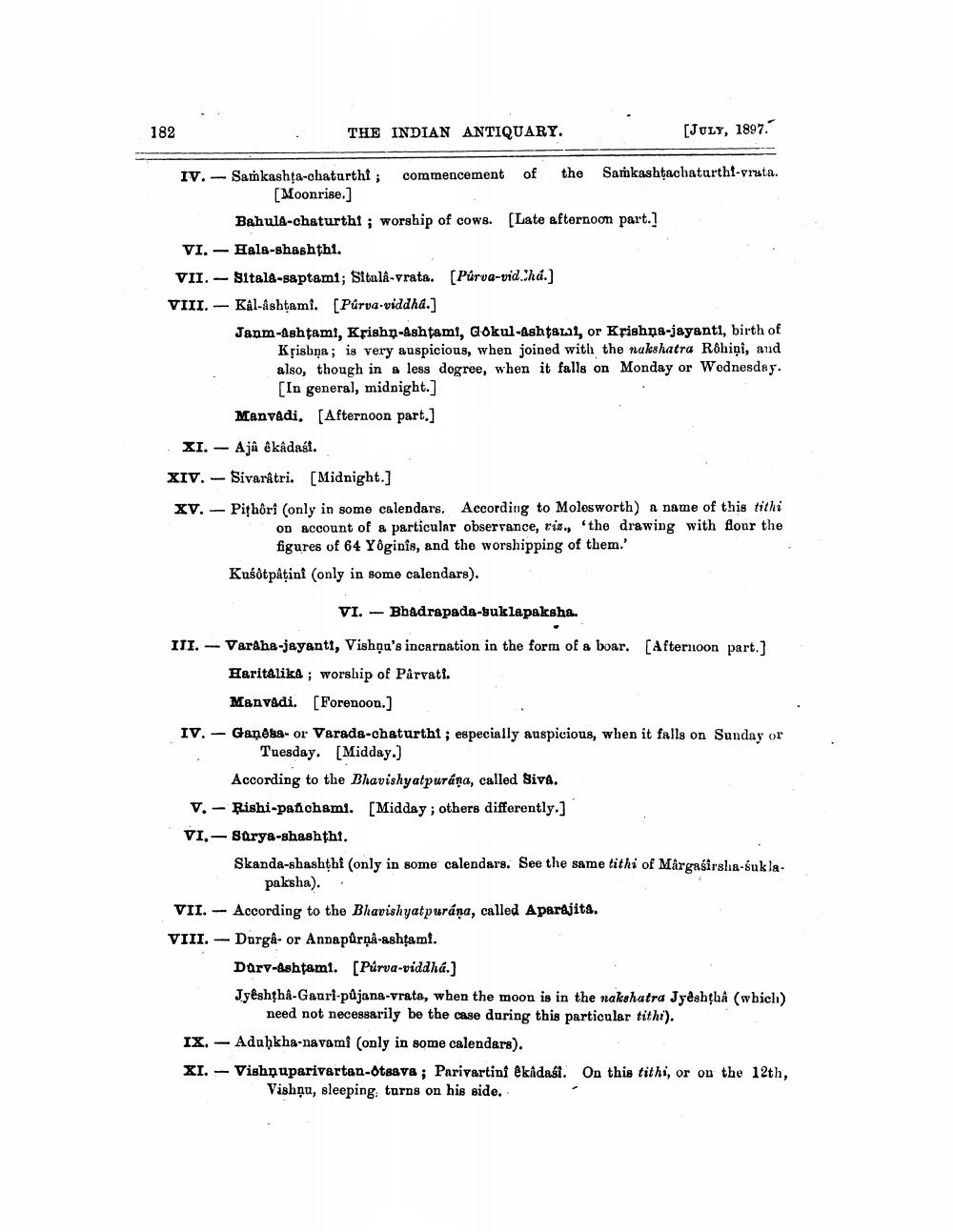________________
182
[JULY, 1897.
IV. Samkashta-chaturthi ; commencement of the Samkashtachaturthi-vrata. [Moonrise.]
Bahula-chaturthi; worship of cows. [Late afternoon part.]
VI.
VII.
VIII.
XI.
III.
-
-
XIV. Sivaratri. [Midnight.]
XV.
VII.
VIII.
THE INDIAN ANTIQUARY.
Hala-shashthi.
Sitala-saptami; Sitala-vrata. [Pûrva-vid.há.]
Kâl-âshtami. [Puúrva-viddha.]
Janm-Ashtami, Krishn-ashtami, dokul-ashtarai, or Krishna-jayanti, birth of Krishna; is very auspicious, when joined with the nakshatra Rohini, and also, though in a less degree, when it falls on Monday or Wednesday. [In general, midnight.)
Manvadi. [Afternoon part.]
Ajû êkâdasi.
Pithôri (only in some calendars.
According to Molesworth) a name of this tithi on account of a particular observance, riz., 'the drawing with flour the figures of 64 Yôginîs, and the worshipping of them.'
Kuśôtpâţinî (only in some calendars).
VI. - Bhadrapada-suklapaksha.
-
- Varaha-jayanti, Vishnu's incarnation in the form of a boar. [Afternoon part.] Haritalika; worship of Pârvati.
Manvadi. [Forenoon.]
-
IV. - Ganesa or Varada-chaturthi; especially auspicious, when it falls on Sunday or Tuesday. [Midday.)
V.
VI. Surya-shashthi.
Skanda-shashṭhi (only in some calendars. See the same tithi of Mârgasirsha-suklapaksha).
-
According to the Bhavishyatpurána, called Siva.
Rishi-pañchami. [Midday; others differently.]
According to the Bhavishyatpurána, called Aparajita.
Durga- or Annapurnâ-ashtami.
Darv-ashtami. [Púrva-viddha.]
Jyêshthâ-Gauri-pujana-vrata, when the moon is in the nakshatra Jyêshṭhâ (which) need not necessarily be the case during this particular tithi).
Aduḥkha-navami (only in some calendars).
IX.
XI. — Vishnuparivartan-otsava; Parivartini ekadasi. On this tithi, or on the 12th, Vishnu, sleeping, turns on his side.




